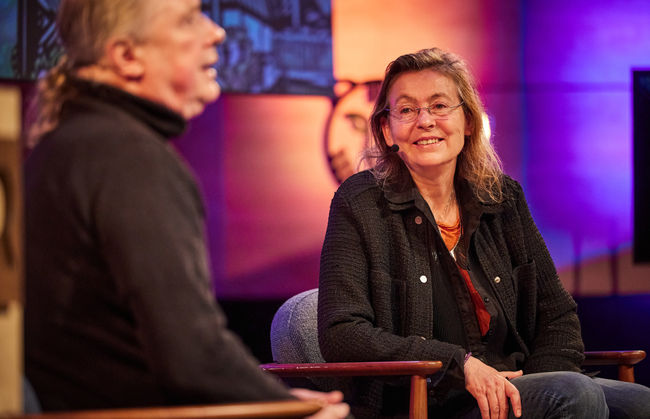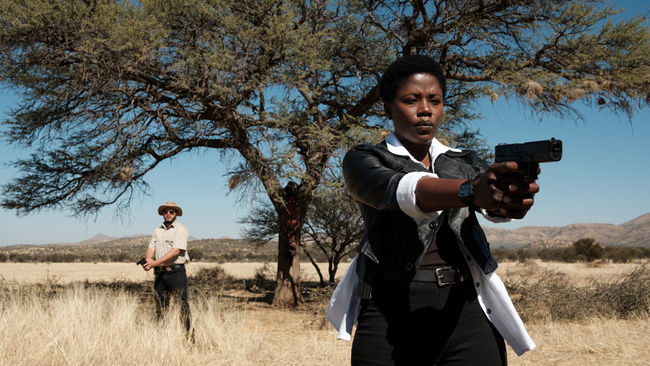Winners at IFFR, where are they now?
11 July 2023
With our 52nd edition recently finished, we are starting to get ready for our next festival and our 53rd edition in 2024. We recently opened submissions for the upcoming festival, gearing up for the next opportunity to award filmmakers in our Big Screen, Tiger, and Ammodo Tiger Short competitions. But before we do that, let’s take a moment to check back in with the winners past and find out where their work has led them since IFFR. We interviewed some of the IFFR prize-winners about how this experience has affected their artistic practice and what they’re working on now.
Tiger Award winner, Paz Encina with EAMI
EAMI is a magic-realist trip, in which the girl/bird-god Eami has to bid farewell to the rainforest that has been her people’s home for centuries. A loving ode to nature, and an indictment of deforestation and the treatment of indigenous people.
When the film picked up the Tiger Award at IFFR, Encina was waiting for the response from the Radcliffe Fellowship at Harvard University, which she has since been awarded for the project The Only Time or El único tiempo. Originally envisaged to be a short film and smaller production, it has since developed into a feature fiction currently still in progress as Encina finishes the script. Her new feature looks at a family that lives in exile.
“Maybe they're important because they're things I know.”
Both her winning film at IFFR and her new project share themes of absence and exile. “I always think it's important for a director to know what they’re talking about,” said Encina as she reflected on why these topics are important to her work. “Maybe they're important because they're things I know. I feel like I know what I'm talking about and that because of that, I can convey something.”
After picking up IFFR’s flagship prize, Encina noticed her work getting more consideration and circulation, the filmmaker stated about winning the Tiger Award “something like that has a lot of impact in the world of cinema”.
Read more about the Tiger Competition
Special Jury Award winners
Morgane Dziurla-Petit with Excess Will Save Us
In Excess Will Save Us, a young filmmaker returns to her home village in the north of France, in the aftermath of a terrorist incident that turns out to be a slightly absurd misunderstanding. She becomes caught up again in close, constricting family ties at the tumbledown family farm.
“I’m working on the longest running project I’ve ever had”
“The award gave me the opportunity to really focus on writing, for a longer time than I’ve ever done before”, said Petit. “I have two and a half projects we can say these days. I’m working on the longest running project I’ve ever had; it’s a fiction period drama inspired by my mother’s childhood and it’s from the point of view of a five year old who thinks she’s responsible for all the violence happening in her community, in her family, on TV, everywhere. The consequences of her mother’s decision to make a vow of silence and not speak anymore and that uh, ouais, as I said before, this little girl thinks she is responsible for it and tries to find a way to resolve that.”
Despite her French nationality, Pitchoune will be Petit’s first French production. All of her other films have always been Swedish productions, despite some of them being set in France. Petit reflected on this: “so that’s exciting and now I feel like there’s really a connection in all of my work between French and Swedish productions. Like this one will be co-produced by a Swedish company and now I also have a Swedish project that will be co-produced by a French company too *laughs*.”
“What would you tell your 13 year old self?”
Her second new project Kungen av Kumbalaya or The King of Kumbalaya is another hybrid mockumentary featuring her father and actor Patrick Petit. She told us that the idea for this began during the premiere at IFFR: “we did a podcast where they asked my dad ‘what would you tell your 13 year old self?’ and he said that he would tell him to become a film director. I was really shook because my whole teenagehood he was insulting my desire to become a film director and then he’s like ‘oh I should have become a film director’ *laughs*. I thought it was very funny and then he came back to this place and he started to buy film books about François Truffaut, started to speak on the phone with me about his film critiques, like he knows the network and everything, he’s an expert! *laughs*.’’
“There were so many directors working together.”
In this upcoming work, Petit addresses themes of inspiration, saying “it’s almost a capitalistic notion to think that you can just produce inspiration for someone’’. In this project, her father comes to her home country Sweden, to ask for her help in directing a film. Although she hesitates, she decides to make a documentary with him and inspire him in twisted ways. Petit compared similar themes of social mobility from her IFFR prize-winning work and this new project: “I mean it’s the experience you have as a filmmaker, when you start a new project and you feel compelled to continue a career, so then you have to create that inspiration but there is also the link with, I would say a bit like social class shifts and also social humiliation.”
Petit explained how winning at IFFR gave her money and time to explore her writing in tone and genre, as well as explore new methods of writing, such as organising workshops and collective writing: “at Return of the Tiger, I felt like there were so many directors working together and I was a bit jealous!’’
Gao Linyang with To Love Again
In To Love Again, the second Special Jury Award winner from 2022, Li is looking for a grave for his late wife, who died during the turbulence of the 1960s. Maybe there will be space in the family grave set aside for him and his current wife? Poignant, stunningly beautiful observation of a traumatised older couple driven further and further apart by deep wounds.
“There are no boundaries for movies.”
“The IFFR experience was extraordinary,” described Gao, “and made me understand that there are no boundaries for movies. The movie itself is a language. Whatever the language you are speaking, the film will speak for itself.’’
Gao recently finished the script in February for his upcoming project titled Reborn. Like To Love Again, the story focuses on how people reconcile with their past. On the themes in this film, Gao explained “I have always considered how to get along with my past and reconcile with myself. I consider myself someone who is very affected by the past. People all do that; your instinct is, to the most extent, instructed by your experience and I am curious about it. The process of me doing all these projects is also the process of me learning about myself.’’
On that note, Gao urged the IFFR audience to revisit his work released prior to winning at IFFR such as Striding into the Wing and On the Border – as he wrote these scripts in his younger years and they may tell a different story or provide insight on his youth and journey into cinema.



